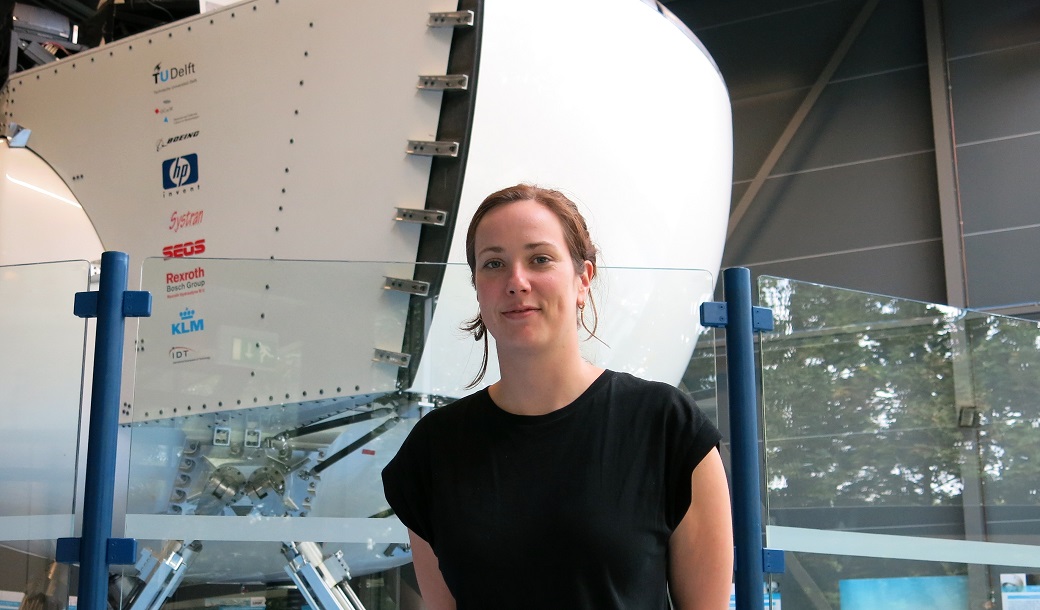Who are the people who work and study on campus? We meet them in Humans of TU Delft. This week: PhD student Annemarie Landman who aims to help pilots improve stress response.
Annemarie Landman: "I don’t think any plane has ever crashed due to a flinch response." (Photo: Heather Montague)
After studying how athletes and police officers can improve performance under pressure, Annemarie Landman came to TU Delft. Her background in kinesiology bridged a way to a PhD on helping pilots improve their response to unexpected and stressful situations.
“I studied human movement sciences or kinesiology at the Vrije Universiteit Amsterdam, which also involves learning how we can help people perform optimally in sports. Part of it is more about sports psychology, how you can help someone to mentally perform their best under pressure. There is of course an incredible amount of stress and pressure in professional sports. After that I investigated how to train for anxiety-inducing situations for the police. Any situation where police have to use their skills, like arrest or shooting skills, is likely to be a very intense situation so how do you train for that?
‘In scientific literature, startle is a really narrow concept’
Then I ran across a vacancy for this position at TU Delft. The background is that since last year all airline companies or simulator training companies have to incorporate startle and surprise in their curriculum. With this research project, that was financed by TNO Soesterberg, we’re trying to get a better picture of how to think about this problem. What is really going on when someone is startled or surprised and how can you use that understanding of the problem to find better ways of training for pilots.
When I started my research, it was about ‘inducing startle in flight crew’, but during the process I became convinced that the problem is more about surprise than about startle. In scientific literature, startle is a really narrow concept. It’s really a jump-scare, a quick reflex, a sudden flinch. Surprise is more about your thinking. It’s that you recognise that a piece of information you perceive does not match with your understanding of the situation. So, it’s really about how you think about the world, your assumptions, your understanding, what logic you are using. It’s more cognitive.
People often use the word startle to also mean surprise. This has led to a lot of confusion, because then people were looking at the reflex response and were trying to explain how this caused accidents. But I don’t think any plane has ever crashed due to a flinch response. It’s what happens after that, being highly stressed and having to solve the surprise.
It’s nice to clear your mind and think about something else at the end of your thesis. There’s probably still plenty to learn on this topic, but I kind of formulated my opinion and now I can let other people take over. My opinions on the topic will likely still evolve over time, but it’s good to have put them as propositions on paper and let people think about them.”
Want to be featured in Humans of TU Delft? Or do you know someone with a good story to tell? Send us an e-mail at humansoftudelft@gmail.com
Heather Montague / Freelance writer



Comments are closed.